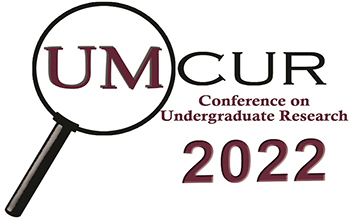Project Type
Presentation
Faculty Mentor’s Full Name
Dr. Holly Riley
Faculty Mentor’s Department
Davidson Honors College Post-Doctoral Research
Abstract / Artist's Statement
Growing instability in higher education funding (Thomas, 2021) has directly impacted the University of Montana music program but has also indirectly changed the role of music students to such an extent that I now often say, “every artist is an advocate.” In 2018, the University of Montana School of Music experienced significant threats from budget cuts, and in the years following, attempts to earn legislative funding for capital development failed. Faced with these budget cuts and other lack of funding, music students had to advocate for themselves and employ community and institutional support to maintain the strength of their program. Due to this heightened organizing and advocacy from music students, proposed budget cuts were significantly reduced, and some authority funding was still received from our legislature. In this paper, I describe how I leaned into policy and grassroots organizing of music students as a student body Senator and the Student Music Union President to advocate for these efforts, and I evaluate how these efforts highlight future challenges for music students and their advocacy. I use autoethnographic research methods (Ellis, 2011) to reflect on these events and to highlight how the personal impacts of these events motivated my research on common themes surrounding music advocacy. The project demonstrates both the bounds and capabilities of student advocacy while indicating themes of financial instability across music schools, lending to the concept that "every artist is an advocate".
Category
Visual and Performing Arts (including Creative Writing)
Every Artist is an Advocate
UC 326
Growing instability in higher education funding (Thomas, 2021) has directly impacted the University of Montana music program but has also indirectly changed the role of music students to such an extent that I now often say, “every artist is an advocate.” In 2018, the University of Montana School of Music experienced significant threats from budget cuts, and in the years following, attempts to earn legislative funding for capital development failed. Faced with these budget cuts and other lack of funding, music students had to advocate for themselves and employ community and institutional support to maintain the strength of their program. Due to this heightened organizing and advocacy from music students, proposed budget cuts were significantly reduced, and some authority funding was still received from our legislature. In this paper, I describe how I leaned into policy and grassroots organizing of music students as a student body Senator and the Student Music Union President to advocate for these efforts, and I evaluate how these efforts highlight future challenges for music students and their advocacy. I use autoethnographic research methods (Ellis, 2011) to reflect on these events and to highlight how the personal impacts of these events motivated my research on common themes surrounding music advocacy. The project demonstrates both the bounds and capabilities of student advocacy while indicating themes of financial instability across music schools, lending to the concept that "every artist is an advocate".
